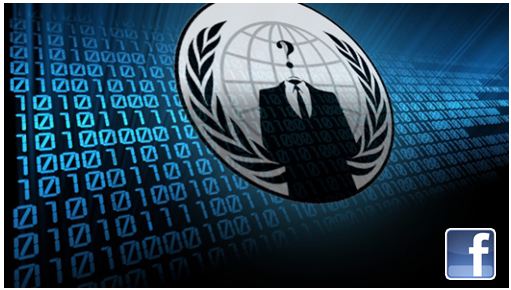
I’m a social media guy. I’ve been blogging for six years and have been on Facebook since its beginning in France. I’m very familiar with how Facebook has evolved. So, I guess you could say I “get it,” but to be honest, even to somebody like me, Facebook has become too complicated, and even frightening.
I’ve found myself thinking that even the most die-hard users must also find Facebook’s changes — while esthetically appealing — incredibly confusing.
Following your Facebook feed can become a part-time job! You can spend a whole night plowing through your recent timeline updates, hiding what you don’t want to see, configuring all of your privacy settings, reconfiguring who has access to each and every photos album … it is starting to feel like you are becoming your own website administrator.
When you realize that Facebook can remove all of the filters that you had previously defined and dig up old photos albums that you had deleted from your profile, you quickly realize how much trust you’ve put into this machine — and there is nothing you can do about it but stop using it.
For me, the changes with Facebook have made make me shudder, especially when I start thinking through some of the implications of the new direction they are taking.
Facebook ubiquity
Facebook’s announcements last week imply that EVERYTHING we do, say, listen to, eat, work on, play on … every detail of our lives .. will be shared, stored, and then dissected at the discretion of the Facebook algorithms. You might be thinking : “Wake up! There is nothing new, you’ve got to accept that anything online can be made public at any moment — even an e-mail.”
But having the ambition to display the whole life of their users is just insane. Take Spotify, for example! Sharing the music you’re listening to seems great, right? Just put yourself in the shoes of a shy 16-year-old guy; what is he going to do to impress others and fit in? He’s going to listen to the same music that everyone else is listening to, so as not to seem “weird” at all via his very public Facebook profile.
Imagine that he may stop listening to what he really likes because he will be ashamed to share his real taste in music, unless he is one of the rare users that figures out how to stop the feed from Spotify to Facebook.
Now take this concept and duplicate it for tastes in TV, movies, places to eat … maybe with just about everything.
There’s a significant difference in saying “I’m fan of” something to look cool versus having a machine checking everything that you actually do in real time. Big Brother? We’ve been talking about him for years and it seems like he truly is here.
Facebook is on track to homogenize society, which conversely, and ironically, may “weaken” the database that Facebook is building and the advertising targeting that they are offering!
We are boiling ourselves
Did you ever hear the story about the frog? If you put a frog in a pot of boiling water, it will jump out right away; the frog doesn’t want to die. If you put a frog in a pot of colder water, though, and slowly heat the water, the frog will stay until it dies (There are actual examples of this on YouTube if you really want to see that this is true).
We are frogs being boiled by Facebook. If Facebook had had the same privacy settings when it first started, people wouldn’t have joined or wouldn’t have joined for the same reasons. Now that they have, they stay and just let Facebook keep doing as it will.
We all have heard so many people say: “I’m going to delete my profile”, “Facebook is evil”, but yet they still seem to be on Facebook…
With the arrival of Timeline though, maybe this is a tipping point. My friend Loic recently explained on his blog how his 16-year-old son decided to delete everything from his profile because he was afraid of sharing his life details, especially when people can go back to the very first things he did or put on Facebook.
Loic’s son is not alone; I’ve already heard the same story from multiple other people and friends that are deleting everything or something, clearly a sign of intrusiveness gone too far…
Perhaps the answer to this dilemma is in China.
Facebook is prominent most places in the world EXCEPT for China (and Russia). Part of this is because of China’s censorship and national protectionism, but it is also because Chinese social networks are very different. When I was in China to understand how and which social media networks work there, I quickly discovered that their huge success is mainly due to one thing : anonymity!
When thinking about the future of social networks, it is impossible not to think about China and the way its social networks could change how we interact …
If Facebook could move to other countries, could Chinese social media platforms, with their elegant emphasis on anonymity, come into the Western World?
I think that we could see a backlash and a strong return to anonymity on the web because people love sharing their real lives, real stories, real fun, real everything without wondering about personal branding, or — wondering who is watching.
Any way, I can’t help but admire how much simpler and liberating our online experience would be — especially for youth — if we had a simple social networking platform that allowed anonymity.
What do you think? Is the trade-offs worth it? Or, will you happily continue to feed information into the machine?
Gregory Pouy is a marketing professional who blogs at Greg from Paris. He also has created a very useful eBook on The Future of Commerce. Follow him on Twitter at @gregfromparis.